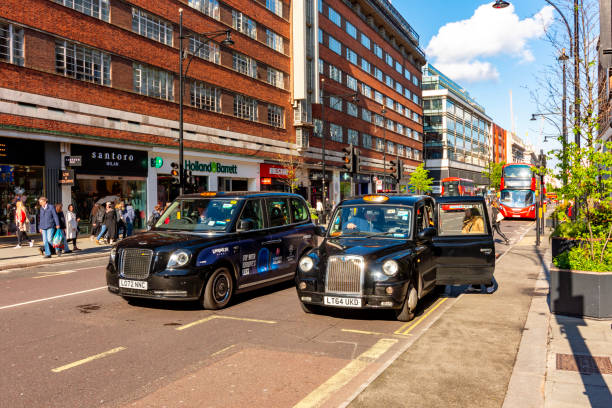In the world of healthcare, cleanliness is not just about aesthetics it’s a matter of life and health. Healthcare Cleaning plays a critical role in preventing infections, ensuring patient safety, and maintaining a healthy environment for both staff and visitors. From hospitals and clinics to dental offices and aged care facilities, Healthcare Cleaning demands precision, advanced techniques, and strict adherence to hygiene standards.
Understanding the Importance of Healthcare Cleaning
Healthcare environments are vulnerable to bacteria, viruses, and pathogens that can easily spread if proper sanitation protocols are not followed. Unlike standard commercial cleaning, Healthcare Cleaning requires specialized training, hospital-grade disinfectants, and industry compliance.
Protecting Patients and Staff
Patients in hospitals and clinics often have weakened immune systems, making them more susceptible to infections. Effective Healthcare Cleaning reduces the risk of Hospital-Acquired Infections (HAIs) one of the leading causes of prolonged hospital stays and increased healthcare costs.
Cleaning teams focus on sanitizing high-touch surfaces like door handles, bed rails, and medical equipment. This meticulous approach ensures the safety of everyone in the facility, from doctors and nurses to visitors.
Enhancing Facility Reputation and Compliance
A clean and sanitized healthcare facility reflects professionalism and care. Beyond visual cleanliness, medical environments must comply with standards such as the New Zealand Infection Prevention and Control Guidelines or CDC recommendations in other countries.
Professional Healthcare Cleaning providers ensure compliance with these guidelines, helping facilities maintain accreditation and a positive reputation among patients and staff.
Key Areas Covered in Professional Healthcare Cleaning
Every healthcare facility has unique cleaning requirements based on its layout, patient flow, and medical services. Below are the main areas where Healthcare Cleaning is essential.
Patient Rooms and Wards
Patient rooms are high-risk zones where germs can thrive. Cleaning staff disinfect all touchpoints, including:
-
Bed frames and side tables
-
Monitors and IV stands
-
Switches, handles, and remotes
-
Bathroom fixtures
Daily disinfection with hospital-grade cleaning products minimizes cross-contamination and maintains a sterile environment.
Operating Theatres and Procedure Rooms
Surgical areas demand the highest level of cleanliness. These spaces require terminal cleaning, which includes removing contaminants, disinfecting air vents, and sterilizing all surgical tools and surfaces.
Specialized cleaning agents and equipment are used to ensure that even microscopic pathogens are eliminated before the next procedure.
Waiting Areas and Reception Zones
While these spaces may not seem critical, they are often the first points of contact for visitors. Regular cleaning and disinfection of seating areas, counters, and doorways prevent the spread of germs among patients and guests.
Laboratories and Diagnostic Areas
Labs and testing zones require careful cleaning using non-reactive and safe chemicals. Surfaces must be sanitized without damaging sensitive equipment or compromising sample integrity.
The Role of Professional Cleaning Services in Healthcare Environments
Not every cleaning company is equipped to handle the demands of a healthcare facility. Professional Healthcare Cleaning services bring expertise, safety, and efficiency through certified procedures and trained personnel.
Trained Cleaning Technicians
Staff working in healthcare environments receive specialized training in infection control, waste disposal, and equipment sanitization. They understand the importance of:
-
Using colour-coded cleaning tools to avoid cross-contamination
-
Handling biohazardous waste properly
-
Following strict cleaning schedules and documentation procedures
Use of Hospital-Grade Disinfectants
Professional Healthcare Cleaning uses EPA-approved disinfectants or medical-grade solutions that can kill bacteria, viruses, and fungi without harming patients or surfaces. These products are chosen carefully to ensure safety, efficiency, and compliance.
Compliance with Health and Safety Standards
Professional cleaning companies adhere to national and international standards such as:
-
Infection Prevention and Control (IPC) guidelines
-
Occupational Health and Safety (OHS) regulations
-
Environmental Cleaning Standards for Healthcare Facilities
By maintaining these standards, Healthcare Cleaning providers ensure a safe and healthy environment for all.
Advanced Technologies in Healthcare Cleaning
Modern cleaning companies integrate advanced tools and techniques to improve hygiene standards. Let’s explore how innovation shapes the future of Healthcare Cleaning.
Electrostatic Spraying
Electrostatic sprayers evenly distribute disinfectants across all surfaces, including hard-to-reach corners. The charged particles ensure thorough coverage and faster drying times.
UV-C Light Disinfection
Ultraviolet (UV-C) light is a chemical-free disinfection method that kills pathogens on contact. It’s especially useful in sterilizing surgical rooms and medical equipment between uses.
HEPA Filtration Systems
Cleaning with HEPA-filtered vacuums ensures the removal of fine dust, allergens, and microbes from floors and carpets keeping the air cleaner and healthier.
Antimicrobial Surface Coatings
Some healthcare facilities use long-lasting antimicrobial coatings that continue killing bacteria for weeks after application, adding an extra layer of protection.
The Benefits of Regular Healthcare Cleaning
Maintaining regular and professional Healthcare Cleaning schedules offers long-term benefits for both patients and staff.
Reduced Infection Risks
Consistent disinfection minimizes outbreaks of common infections like MRSA, influenza, and COVID-19, helping hospitals maintain patient safety.
Improved Air Quality
Dust and pathogens in ventilation systems can affect indoor air quality. Professional Healthcare Cleaning ensures that HVAC systems and air filters are regularly maintained.
Enhanced Patient Experience
A clean and organized hospital environment fosters comfort, trust, and satisfaction among patients and visitors, reflecting the facility’s commitment to care.
Cost-Effective Operations
Preventing infection is more economical than treating it. Investing in Healthcare Cleaning saves hospitals from unnecessary medical and legal costs associated with infections.
Sustainable Practices in Healthcare Cleaning
Sustainability is gaining importance in all industries, including healthcare. Modern cleaning practices focus on eco-friendly methods without compromising hygiene.
Green Cleaning Products
Using biodegradable and non-toxic cleaning agents reduces chemical exposure and environmental impact. These products are safe for sensitive patients and healthcare workers.
Waste Reduction and Recycling
Proper segregation and disposal of medical and general waste ensure compliance with environmental regulations while minimizing landfill contributions.
Water and Energy Efficiency
Advanced cleaning tools are designed to use less water and electricity, supporting sustainable facility management.
Choosing the Right Healthcare Cleaning Partner
When selecting a Healthcare Cleaning provider, look for the following qualities:
-
Industry experience and reputation in cleaning medical facilities
-
Trained and certified cleaning staff
-
Availability for 24/7 services
-
Customizable cleaning plans
-
Transparent reporting and quality assurance
A reliable cleaning partner not only cleans but also helps maintain compliance and peace of mind for hospital administrators.
Conclusion
Healthcare Cleaning is not just a routine task it’s a vital component of patient safety and healthcare excellence. With trained professionals, advanced technology, and sustainable practices, facilities can ensure sterile environments that support recovery and well-being. Whether it’s a large hospital or a small clinic, investing in professional Healthcare Cleaning is an investment in trust, safety, and health.
Explore Our Specialized Cleaning Solutions
Car Dealership Cleaning
Just like hospitals, car showrooms also need to project cleanliness and professionalism. Car Dealership Cleaning ensures spotless showrooms, polished display vehicles, and pristine customer lounges that enhance customer confidence. A clean dealership highlights your brand’s attention to detail and creates an inviting atmosphere for buyers.
Gym Fitness Centre Cleaning
Maintaining hygiene in fitness environments is equally crucial. Gym Fitness Centre Cleaning services focus on sanitizing workout equipment, locker rooms, and high-traffic areas to prevent bacteria and odour build-up. This creates a safer, fresher, and more motivating environment for members.
FAQs
1. What makes Healthcare Cleaning different from regular cleaning?
Healthcare Cleaning involves specialized disinfectants, tools, and procedures to eliminate pathogens and maintain sterile environments unlike regular cleaning, which focuses on surface appearance.
2. How often should healthcare facilities be cleaned?
Cleaning frequency depends on the facility type and patient turnover. Most Healthcare Cleaning schedules include daily cleaning, with high-touch and surgical areas sanitized multiple times a day.
3. Are eco-friendly products safe for medical cleaning?
Yes. Green cleaning products approved for healthcare use are safe and effective against most pathogens while reducing chemical exposure for patients and staff.
4. Can professional cleaning help reduce hospital infections?
Absolutely. Professional Healthcare Cleaning reduces cross-contamination risks and helps control Hospital-Acquired Infections (HAIs).
5. Why choose a professional cleaning company for healthcare environments?
Because professionals follow strict infection control protocols, use hospital-grade disinfectants, and ensure compliance with health and safety standards.




